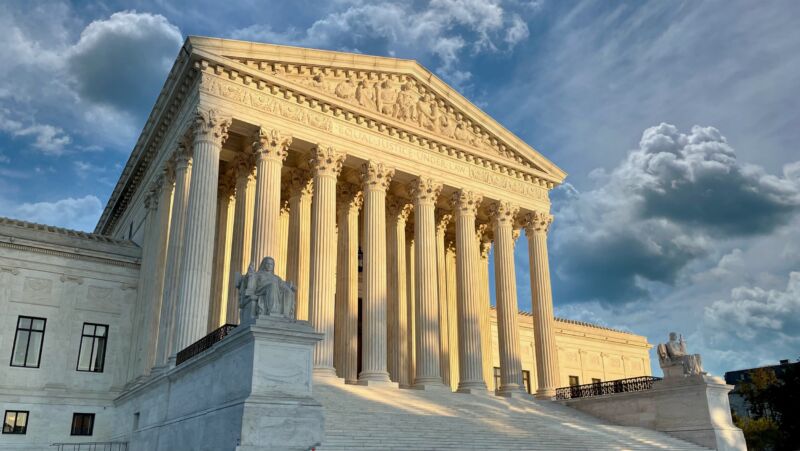Supreme Court considers limits on White House contacts with social media

The Supreme Court on Friday extended a stay of a lower-court order that would limit the Biden administration’s contacts with social media firms, giving justices a few more days to consider whether to block the ruling entirely. The court could rule by the middle of this week on the Biden administration motion in a case in which the states of Missouri and Louisiana allege that speech related to COVID-19 and other topics was illegally suppressed at the behest of government officials.
A stay issued September 14 was scheduled to expire on Friday, but Justice Samuel Alito ordered that it be extended until Wednesday, September 27, at 11:59 pm ET. Alito is the justice assigned to the 5th Circuit, the circuit in which an appeals court ruled that the White House and FBI likely violated the First Amendment by coercing social media platforms into moderating content and changing their moderation policies.
The 5th Circuit appeals court ruling wasn’t a total loss for the Biden administration. Appeals court judges threw out the majority of a district judge’s preliminary injunction that ordered the Biden administration to halt a wide range of communications with social media companies.
While most of the original injunction’s restrictions were eliminated, the Biden administration asked the Supreme Court to block the one surviving prohibition. Under the recently revised injunction, Biden administration officials would be barred from taking any action to directly or indirectly “coerce or significantly encourage social-media companies to remove, delete, suppress, or reduce, including through altering their algorithms, posted social-media content containing protected free speech.”
“That includes, but is not limited to, compelling the platforms to act, such as by intimating that some form of punishment will follow a failure to comply with any request, or supervising, directing, or otherwise meaningfully controlling the social-media companies’ decision-making processes,” the injunction says.
US: We were persuading, not coercing
The US motion for a stay pending resolution of the lawsuit contends that the Supreme Court is likely to grant certiorari and then reverse the injunction after hearing the case. The 5th Circuit appeals court “held that federal officials’ interactions with private social-media platforms transformed a broad swath of the platforms’ content-moderation decisions into state action subject to the First Amendment,” the US motion said. “That holding has significant implications for officials at all levels of government, many of whom routinely engage with or speak about social-media platforms. It also has grave implications for the platforms themselves, which on the Fifth Circuit’s logic are state actors subject to suits for violating the First Amendment.”
The US argues that it was merely “urging platforms to remove COVID-19 misinformation, highlighting the risk of disinformation from foreign actors, and responding to the platforms’ inquiries about matters of public health.” Administration officials’ attempts to influence content moderation were persuasion, not coercion, the US told the Supreme Court.
The 5th Circuit appeals court saw things differently, finding that Biden administration “officials made express threats and, at the very least, leaned into the inherent authority of the President’s office. The officials made inflammatory accusations, such as saying that the platforms were ‘poison[ing]’ the public, and ‘killing people.’ The platforms were told they needed to take greater responsibility and action. Then, they followed their statements with threats of ‘fundamental reforms’ like regulatory changes and increased enforcement actions that would ensure the platforms were ‘held accountable.’… Given all of the above, we are left only with the conclusion that the officials’ statements were coercive.”
The appeals court decided that the White House and FBI likely violated the First Amendment by coercing social media platforms into moderating content and changing their moderation policies, and that the Centers for Disease Control and Prevention also acted improperly but did not “coerce” social networks.
While the underlying lawsuit was filed by Missouri and Louisiana along with several private plaintiffs, the state of Ohio has joined the fight against the Biden administration. In a Supreme Court filing, Ohio Attorney General Dave Yost argued that the preliminary injunction should take effect. Blocking the injunction “would empower the government to resume censoring—or, at minimum, encouraging the censoring—of speech on matters of immense public import,” the Ohio filing said.
https://arstechnica.com/?p=1970846